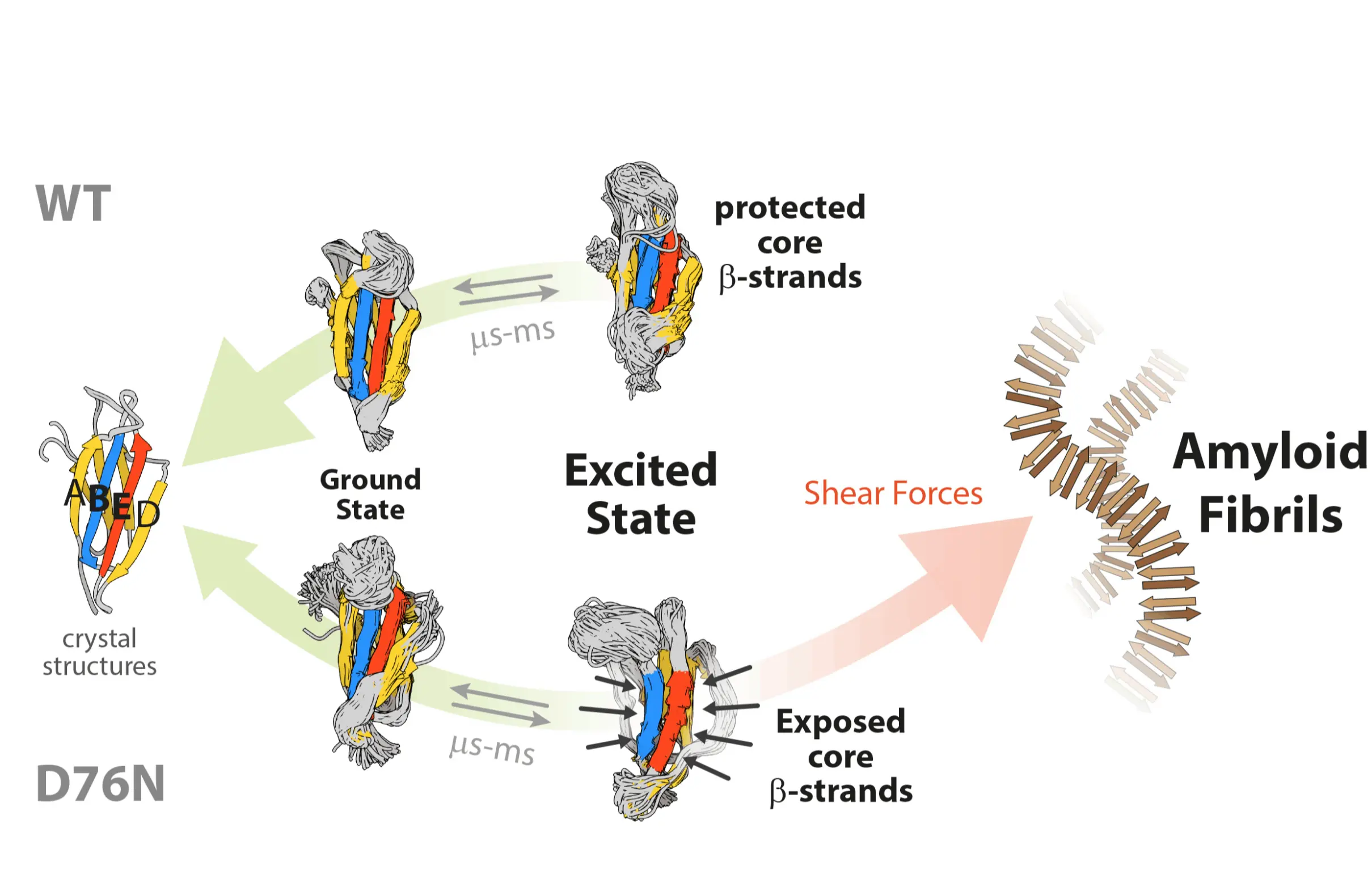

Beta-2 microglobulin (b2m) is the light chain of the major histocompatibility complex I. B2m is a seven-stranded beta-sandwich, stabilized by a disulphide bridge (Cys25 - Cys80) that locks the two beta-sheets. In patients with kidney failure, wt b2m catabolism is impaired and the protein tends to accumulate in the blood to high concentrations, triggering the formation of amyloid plaques in bones and skeletal joints. Such disorder is known as Dialysis Related Amyloidosis (DRA). Beside wt b2m, the mutated form D76N is responsible for a rare genetic systemic amyloidosis: abundant amyloidosis. The D76N variant is very amyloidogenic in vivo and in vitro and can also trigger wt b2m aggregation. Since 2008 we are structurally and biophysically characterising wt and D76N b2m variants in order to understand the intrinsic amyloid propensity of the wt protein and the effects of the D76N mutation, which results in such increased aggregation propensity.
Recently we showed that b2m aggregation is involved in another life-threatening disease: multiple myeloma. in this contest, b2m is endocytosed by tumour associated macrophages (TAM), but lamentably in TAMs lysosomes b2m aggregates into amyloid fibrils thanks to the lysosomal acidic pH. This aggregation results in lysosomal damage and ultimately in the secretion by TAMs of inflammatory cytokines which support tumour survival and progression.
Click here for the full list of publications on b2m.
No Code Website Builder